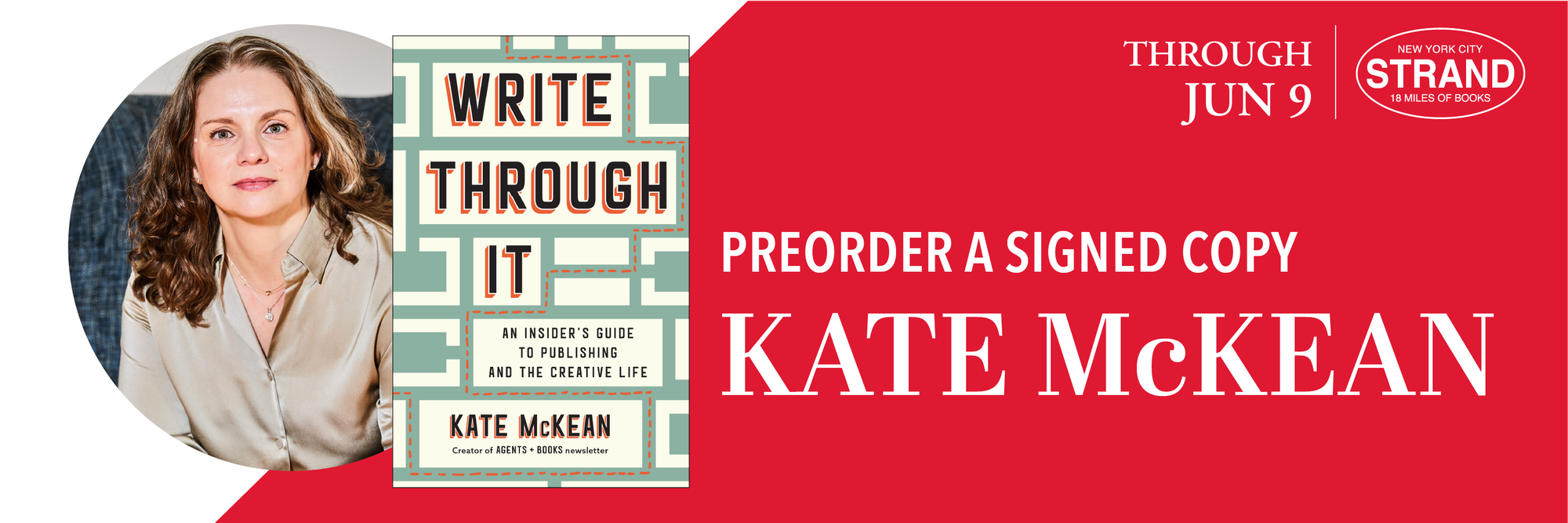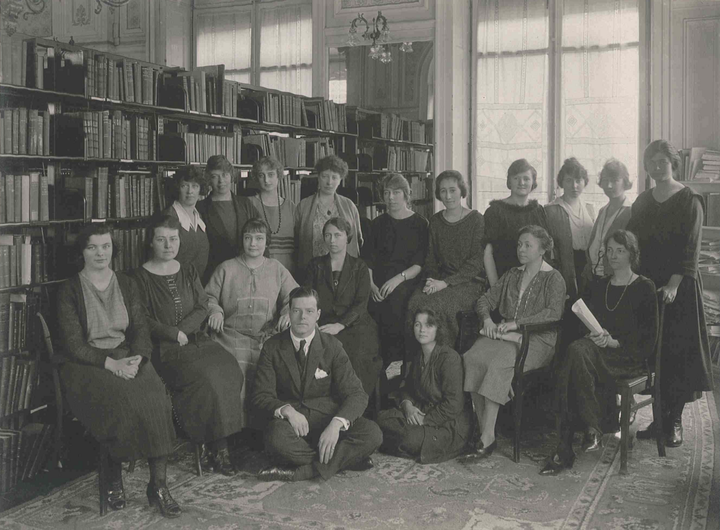Query Letters
Once More With Feeling


Friends,
It’s an exciting day in Agents & Books land. No, it’s not about my book—we’re still two weeks out from the publication of WRITE THROUGH IT: An Insider’s Guide to Publishing and the Creative Life. It’s no special anniversary either. I’ve been writing this newsletter for six years, four months, and sixteen days. But today, we’re going to revisit some foundational posts in our world, to see what’s changed and what hasn’t. To see how my advice has changed and how it hasn’t. Won’t you come along for the fun?
I’ve struggled with the idea of recapping previously covered material because, well, I know I’ve talked about it, and any reader can go search the archives anytime. But ¯\_(ツ)_/¯ Let’s do it anyway. If you’re not at a query letter point in your career, because it’s ahead or behind you, keep reading so you can help those in your circle who are. I mean, who doesn’t want to be the one who says no no no, that’s not what you need to do in query letters anymore. Even better, you can just forward that person this post and dispense with the tut tutting. Everyone wins!
My first stab at telling you how to write query letters came in three installments. Here, here, and here. I’m going to see if I can distill all that into one post because we’re all much busier then we were six years ago, yanno with democracy crumbling and everything. So, here goes.
What a Query Letter is:
A query letter is a cover letter that introduces a reader to your BOOK. It gives the reader (who is usually and agent but could be an editor) the basic information about you and your work so they can start to decide if your book is one they want to work on, and/or if they think they can sell it. The most basic information an agent needs to make this decision is the book’s title, word count, and genre. The agent also needs to know what your book is about, the plot of your story, the scope of your argument, and/or what your book sets out to do for the reader—whichever is relevant to your book. Just like you gather information about a book before you decide to buy it (who the author is, what the story is like, where it fits into the genre, does the plot sound interesting) agents are looking for that in a query letter, too. What information do you look for on the back of a book to decide whether to buy it? That’s the information you want to give an agent considering your query.
The way you do that can vary. There isn’t a standard or required format. To make it easier, I suggest thinking of it in three parts.
- Salutation and Basics: here, address a real person (Dear Kate McKean, Dear Ms. McKean, Dear Kate,) and give the title, genre, and word count right off the bat. Do you have to start this way? No. But when you’re struggling to start, this is a good way to kick things off. If you’ve just written a proposal and not a whole book, you can tell me your estimated final word count. It’s ok to guesstimate here.
Dear Kate, I’m excited to share with you my 80,000 word contemporary romance novel, All Hearts on Deck, a dual-timeline story set in 1950s New York in a publishing house and a contemporary setting aboard a cruise ship.
- Body Paragraphs: Here, TELL THE READER WHAT HAPPENS IN YOUR BOOK! Think of these 1-2 paragraphs as a short summary of the book, like you’d see on the back cover of a published book. Share the plot and the stakes. Share the arc of your narrative. Share what the reader is going to get out of your book or why they need it (if it’s non-fiction and doesn’t really have a plot). You can tell the reader what happens in the end. Cliffhangers do not propel an agent to read more, I promise.If you find your book does not have a plot or stakes, well, that might be important to figure out before you try querying. Every book has some kind of plot and something at stake. Even if your book is mostly vibes, it has to be about something.
- Author Bio: Tell the reader who you are. If you are a first-time novelist, you may have a thin author bio section and this is OK. You do not have to excuse your lack of experience or dig deep to try to “prove” that you’re a writer (i.e., don’t mention your high school newspaper as your publishing credits). If you are writing non-fiction, this section will be more robust and will need to include information about your platform.
- Closing: It’s a letter, so end it like a letter. This part doesn’t matter in the slightest but if I didn’t put it here y’all would think you didn’t need to do it even though common sense says if you have an opening to a letter, you will have a closing. Say whatever you want here (I look forward to hearing from you. Please find my materials attached. Whatever.) Just say something.
What a Query Letter Isn’t
A query letter is not your 30-second audition for American Idol. It is not a performance. The more you think of it like a performance, the farther you will get from a successful query. Your query should be informative above all else. If you are worried about imbuing your query with your voice, don’t. Your voice is your voice and it will come out without you even trying. Please do not write your query in the voice of your main character, either. I want to sell your book, not your main character’s.
A query letter is not your C.V. It is not the place where you recount every step you’ve taken to get to where you are, how you’ve been writing since you were five years old (me too!) and how you’ve always dreamed of being a writer (me too!). These things are probably true. But your query letter is not the place for them. I cannot sell a book because the author really wants it badly (we all want it so badly) so an emotional appeal doesn’t help you. I also do not take on clients out of pity and you wouldn’t want me to! Further, you absolutely have worked long and hard on this book and you may have done many drafts/much research/extensive legwork/advanced studies to get there. This is great. But I don’t need all that information in a query letter, and it’s likely evident in your actual work and I don’t need to be told that. (Plus, everyone else has worked really hard, too.)
A query letter is also not your artist’s statement. It is not your mission statement. You can certainly tell the agent why you wrote your book, but it’s not necessarily germane to whether I take on a project or not. I assume you wrote your book because you wanted to or needed to share this story with the world. That’s good enough for me. We can talk more about that later.
A query letter is not your place to vent about the injustices (many) and annoyances (even more) with the publishing process. Believe me, I know how hard it is to write (and read!) query letters! I know how slow it is and how long it takes! I know it’s a black hole you send your work into and you never know what you’re going to get out of it! I’m intimately familiar with all these things. I even agree with you. But save that for the group chat, not the query letter.
If you wouldn’t put it in a cover letter for a job application, don’t put it in your query letter.
Now, because I know that this is all easier said than done, here is a Query Letter Checklist to help you make sure you’re covering all the bases.
Salutation (address a real person)
Title
Word count (not page count)
Author Bio
(Fiction) Brief plot description, including stakes, main characters (MAIN—not every single character in the book, and not their middle names either), and resolution. (Yes, you can tell the agent the ending!! We do not read each book just to see what happens.) If you’re not sure what parts of the plot to include, consider what’s most at stake and tell the reader what’s necessary to know to understand that. You will leave a LOT out. This is ok. That’s what you can leave for the reader to discover.
(Non-fiction) Brief explanation of the arc of your story, and/or what your book sets out to do/give/provide/illuminate for the reader. If your book fulfills a practical need, tell how the reader will get to that endpoint. If your book reveals previously undiscovered research or whatever, tell that.
(Memoir) Treat this like fiction, basically. Tell the story of your book.
Sample pages/chapters, according to submission guidelines
Synopsis, if requested in submission guidelines.
No, I won’t get bored reading query letters that are all formatted the same. This is helpful, actually! The weird ones that want to stand out are harder to parse because they don’t just tell me what I need to know. Do not stress about this being a cold or lifeless way to talk about your art. It is! But this is the business side of things and we need cold, hard information to make business decisions about your work. This isn’t an artistic assessment. I pass on “good” books all the time because I am not the person to sell that book. That’s ok. That’s true for everyone all the time.
And rest assured, there are only two cases where I automatically reject a query without even looking at it. 1. If the author is being an abusive jerk by insulting me, dismissing my work, etc etc. Yeah, bye bye friend. And 2. If the genre is absolutely one I do not represent. Like, clearly and without a doubt. And this is good! You don’t want me to be your agent if I know nothing about your genre. So, relax. You won’t get rejected because of a typo or misplaced comma.
But Kate What About?????
Agent personalization: Friends, I’m going to be honest with you. I don’t care about agent personalization in query letters. Some agents like it. Great! But if you are querying me, I assume you want to be my client for some reason and if that reason is you’re a warm body with connections I can probably tell that from what you’re sending me. Most agent personalization is see is Because you represent [name of one of my biggest clients] I am sending you my work. Cool. All that tells me is you googled me. If you have some very specific connection to me—like we met before at a conference or something like that—include it! But otherwise, I don’t care. You don’t need to tell me how special I am. I already know. :)
Comps: Yes, you can include comparable titles in your query letter and you can put them anywhere you want. But honestly, I see a lot of Frankencomps and they aren’t helpful. Writers will say stuff like My book is named after a bird like Donna Tartt’s The Goldfinch, has 576 pages like Jonathan Franzen’s The Corrections, and is set in Milwaukee like the Milwaukee Journal Sentinel and I’m like———. If you’re particularly proud of your comps, include them. But I don’t really need them at the query stage.
We’ll talk more about query letters this week, friends, so stay tuned. And better yet, preorder my book where there’s a WHOLE CHAPTER about query letters and ALSO example query letters, with explanations/notes/feedback in the back of the book.

Don’t forget: you can join me for my NYC launch on June 7th at P&T Knitwear and enter to win a print copy on Goodreads!
OXOXOXOX,
Kate




Comments ()